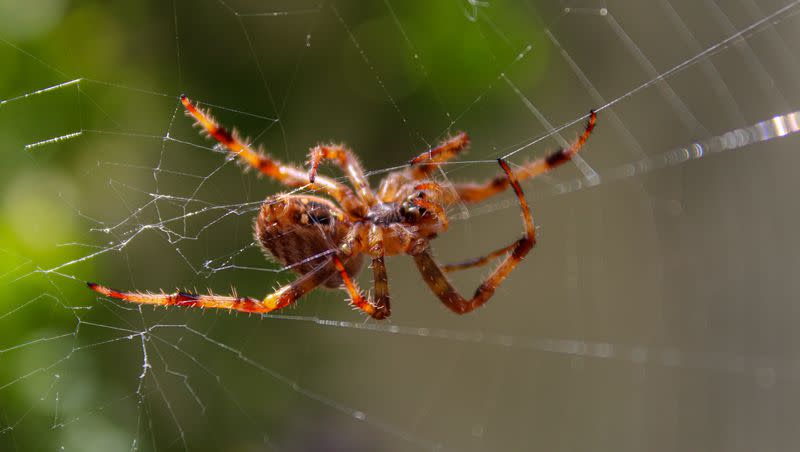Do we really eat spiders in our sleep?

Urban legend has led many to believe that we eat spiders in our sleep, up to as many as eight a year. To put at ease the 3%-15% of people who suffer from arachnophobia (the intense and irrational fear of spiders) — the rest of the population that just thinks they are creepy — it isn’t true.
In fact, it is so unrealistic for a person to swallow a spider in their sleep, Floyd Shockley, an entomologist and the collections manager at the Smithsonian National Museum of Natural History, told The Washington Post, “You’ve got a better chance of winning the Powerball than having a spider fall in your mouth while you’re sleeping,”
What makes it so unlikely?
The notion that spiders frequently crawl into people’s mouths while they sleep is largely a myth, and there are several reasons why it’s quite unlikely:
Spider behavior
Spiders generally don’t intentionally approach humans. They are typically solitary creatures and do not seek out humans. Spiders are more likely to avoid large, living creatures that could pose a threat to them.
According to the Sleep Foundation, “Spiders probably see a sleeping human as a predator that should be avoided. Because they can sense vibrations, spiders are also likely to be scared off by the movements and noises people make while sleeping.”
Related
Why are people drinking aloe vera juice? And is it good for you?
‘Rizz’ is the word of the year for the Oxford University Press. Here’s what the Gen Z term means
Spiders don’t even want to be in your mouth
Spiders prefer environments that suit their survival needs, such as corners or undisturbed areas where they can build webs and catch prey. A human mouth does not provide an environment conducive to their living or feeding habits.
“Spiders breathe oxygen and would be repelled by your mouth, which to them would seem like ‘a warm, moist cave that is mostly carbon dioxide and water vapor,’” Shockley told The Washington Post.
Humans move too much in their sleep
People often shift and move during sleep, and these movements could deter spiders. Also, the likelihood of a spider remaining undetected and undisturbed while a person is asleep is low.
“Vibrations are a big slice of spiders’ sensory universe,” Rod Crawford, the arachnid curator at the Burke Museum of Natural History and Culture in Seattle, told Scientific American. “A sleeping person is not something a spider would willingly approach.”
According to experts, while there’s a remote possibility of a spider entering your mouth during sleep, the likelihood is so minimal it’s almost not worth considering. Should a spider happen to crawl over your face while you’re asleep, the feeling of its eight tiny legs moving on your skin is likely to wake you up.

